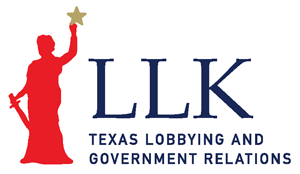The final countdown begins in the last month of the Texas 87th Session. The budget is in conference committees, bills pass through the chambers as fast as ever, there is big news from the Census Bureau, and we have just 31 days left to go!
Constitutional Carry
Lieutenant Governor Dan Patrick created a Senate special committee on Constitutional Issues to discuss and hear testimony on HB 1927, the Firearm Carry Act. Senator Schwertner chairs the committee, Senator Birdwell sits as vice-chair, and Senators Buckingham, Creighton, Hall, Hinojosa, and Lucio are also on the committee. The bill was received in the Senate on April 19 and the committee heard public testimony on April 29. The Firearm Carry Act would allow those 21 and older who are legally able to have a firearm to carry a handgun without a license. Today, those seeking a License to Carry must go through a criminal history background, participate in a training course covering gun safety, nonviolent conflict resolution, and laws on the use of deadly force, and pass a written exam. Interestingly, the bill moves through the chambers at a time when the Supreme Court has announced its intent to hear a gun-control case in the fall, a challenge to a New York gun-control law which requires those seeking a permit to carry a concealed weapon to show a distinct need for self-defense. Maryland, Massachusetts, New Jersey, Rhode Island, Delaware, Hawaii, and California have similar laws. It is expected to be the Supreme Court’s first major Second Amendment decision in more than a decade, after it established an individual’s right to keep guns in the home for self-defense in 2008. Governor Abbott has expressed his support for the bill, if passed by both chambers.
Funding for Texas Schools
Governor Abbott, Lieutenant Governor Patrick, and Speaker Phelan announced Wednesday the release of $11.2 billion in new federal funds to assist public schools addressing student learning loss and costs incurred as a result of the Covid-19 pandemic. “The State of Texas is ensuring that our public schools have the necessary resources to help Texas students recover from learning loss related to COVID-19,” said Governor Abbott. Lieutenant Governor Patrick remarked, “My goal is to ensure that Texas schools — like the rest of our state — come back stronger than ever,” and Speaker Phelan articulated that, “these resources will help close the gap for our students who have fallen behind as a result of COVID-19.” To read the complete announcement, refer to this link here.
Budget Bulletin
After 12 hours of debate, the Texas House passed a nearly $247 billion budget for the next biennium, cautiously planning for a drop-off in one-time federal aid relief dollars. The budget passed on a vote of 149 to 0 and has been received by the Senate. It reflects $41 billion for Texas schools, which is an almost $4 billion increase while also providing an additional $1 billion in local property tax relief. $800 million have been set aside for border security with additional funding for specific programs to address the crisis at the border. With a renewed focus on mental wellness, $1.2 billion is designated for mental health programs servicing adults, children, and crisis services. Also, there are $5 billion to fully fund the increased state contribution to the Teacher Retirement System. Further, the House voted unanimously to require a special session of the legislature to appropriate billions in federal funds coming to Texas, not leaving it solely in the hands of a few legislators or the governor. Senators Nelson (chair), Huffman, Kolkhorst, Taylor, and Nichols are on the conference committee for SB 1, and Representatives Bonnen (chair), Capriglione, Gonzales of El Paso, Walle, and Wilson are on the House appointed conference committee. The conferees will meet to discuss and propose a final budget.
2020 Census
On Monday, the Census Bureau announced Texas gained two congressional seats in last year’s census. Florida, North Carolina, Colorado, Montana, and Oregon each gained one seat, and Michigan, Illinois, Ohio, Pennsylvania, New York, and California each lost one seat. The numbers highlight a continuing population shift from the Northeast and Midwest to the South and West, the Sun Belt states. In a nutshell, congressional apportionment is determined by dividing the U.S. population by 435, the number of seats in the House. Census officials remark that the changes represent the smallest shift in House seats since the 1940 census. New York, for example, could have maintained its seat if just 89 more people had been counted. The U.S. population is up 7.4% from a decade ago, the slowest growing decade since the 1930s. Texas has gained an estimated 4 million residents over the past ten years. Senate Bill 1822, approved by the Senate and awaiting action by the House, postpones the Texas primaries based on delays in redistricting. House Bill 3112, the Texas Redistricting Transparency Act, addresses concerns about the process, including: requiring public hearings and calling for at least 10 public input hearings before census data is released and five such hearings afterwards; publicly publishing all pertinent redistricting information and legislative action on a website maintained by the Texas Legislative Council; ensuring that all Texans have the option to provide in-person or virtual testimony; and many other standards. We currently expect to see a special session for redistricting this fall.
Powering Texas
On Tuesday, the Electric Reliability Council of Texas (ERCOT) named Brad Jones the interim president and CEO to lead the electric grid operator. Jones was the CEO of the New York Independent System Operator from 2015 to 2018, New York’s main electric grid operator. Jones will start his tenure on May 4. He will hold the position for up to one year, or until the ERCOT board of directors appoints a permanent replacement. “The board looks forward to working with Brad during this time as ERCOT prepares for summer operations,” ERCOT Board Director Mark Carpenter said in a statement. “He is an experienced leader and understands the ERCOT vision and mission.”
Public Camping Ban
This weekend, Austin votes on the city’s controversial public camping policies. A similar debate is taking form at the Texas Legislature. Companion bills from the House and Senate would ban public camping across the state and discipline any jurisdiction that permits it. Representative Capriglione penned House Bill 1925 prohibiting camping in a public place and creating a criminal offense. Its companion bill is SB 987 by Senator Buckingham. The bill was laid out for consideration in the House on Monday, and four floor amendments were adopted before the bill was recommitted to the committee on House State Affairs. Voters in favor of Proposition B to reinstate the ban express concerns about maintaining safety and Austin’s reputation as a tourism destination. Opponents remark that ticketing people on the basis that they cannot afford housing is cruel, and jail time (an expense footed by taxpayers) further inhibits a path out of homelessness. If successful, the ban would go into effect days after the election. If signed into law, the statewide camping ban would go into effect September 1.
Covid-19 in Texas
The Texas House Administration voted 7 to 3 to remove the mask mandate on the House floor. The vote comes as an ever-increasing number of Texans receive their vaccinations and cases continue to decline. The Centers for Disease Control and Prevention updated Covid-19 guidelines this week to include new rules regarding fully vaccinated Americans. Those who are fully vaccinated do not need to wear a mask during outdoor activities alone or with members of their household. Fully vaccinated people also do not need to wear a mask during small outdoor gatherings with similarly vaccinated family and friends, or at gatherings with a mixture of vaccinated and unvaccinated people. The same applies to vaccinated individuals dining at outdoor restaurants with friends from multiple households. It is welcome news as the weather warms up and people begin to gather and enjoy company outdoors.
Criminal Justice Reform
Speaker Phelan announced a bipartisan package of 16 bills addressing the Texas bail system, reentry into society, administration of the death penalty, and the number of initial arrests. In his words, “Texas can and should lead on criminal justice reform.” The package, spearheaded by Speaker Phelan and Speaker Pro Tempore Moody, brands itself as “Smarter Justice, Safer Texas.” The package includes HB 20 by Rep. Andrew Murr – Reforming Texas Bail System, HJR 4 by Rep. Kyle Kacal – Denying Bail for Violent Predators, HB 8 by Rep. Leo Pacheco – Requiring Electronic HR Records for Law Enforcement Agencies, HB 830 by Rep. Senfronia Thompson – Ending Arrests for Non-Violent Offenses, HB 1938 by Rep. Jacey Jetton – Reducing Costs of Body Camera Data Storage, HB 3712 by Rep. Ed Thompson – Enhanced Training for Law Enforcement, HB 1441 by Rep. Matt Schaefer – Protecting Personal Property from Forfeiture, HB 1002 by Rep. Eddie Lucio III – Stopping Hypnosis Use in Investigations, HB 1340 by Rep. Jeff Leach – Narrowing Use of Death Penalty, HB 252 by Rep. Joe Moody – Establishing Jury Instructions for Capital Felony Cases, HB 1717 by Rep. Senfronia Thompson – Requiring Turnover of Exculpatory Evidence If Discovered Post-Conviction, HB 1293 by Rep. John Smithee – Creating Pathway to Seek New Trials, HB 686 by Rep. Joe Moody – Reforming Sentencing for Juveniles, HB 385 by Rep. Leo Pacheco – Removing Arbitrary Barriers to Probation, HB 569 by Rep. Scott Sanford – Eliminating Financial Barriers to Re-Entry, and HB 859 by Rep. Nicole Collier – Expunging Decriminalized Offenses.
Dates of Interest
Deep in the heart of the Session there are a number of important dates to keep in mind. Monday, May 10 is the last day for House committees to report House bills and House joint resolutions. May 11 is the deadline for the House to distribute its last House daily calendar, and May 12 is the deadline for the House to distribute its last House local and consent calendar with consent House bills. Friday, May 21 marks the first day the Senate can consider bills and resolutions on the first day they are posted on the Senate Notice of Intent Calendar. This link here provides a comprehensive list of important dates coming up.
Helpful Resources and Countdown
There are just 31 days left in the Session. At this point, a bill could be voted out of committee as late as Friday, May 7, and still be reported to the Calendars Committee in time to be scheduled for a vote on the general calendar. This website provides another overview of important dates and deadlines this Session.
For House and Senate calendars (these can change daily), refer to the link here.
For a complete schedule on upcoming House committee hearings, click here.
For a complete schedule on upcoming Senate committee hearings, click here.
For more information on bills filed and legislative details visit TLO.
Until next week,
Lara Laneri Keel
President, LLK, LLC.


